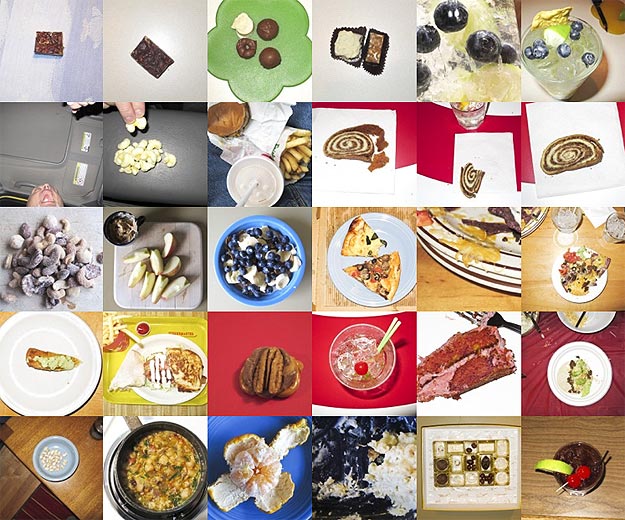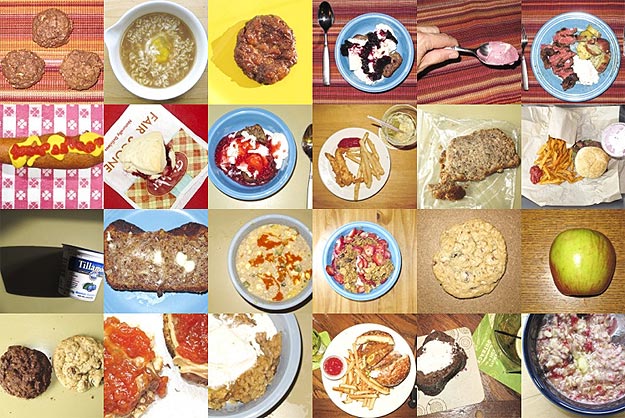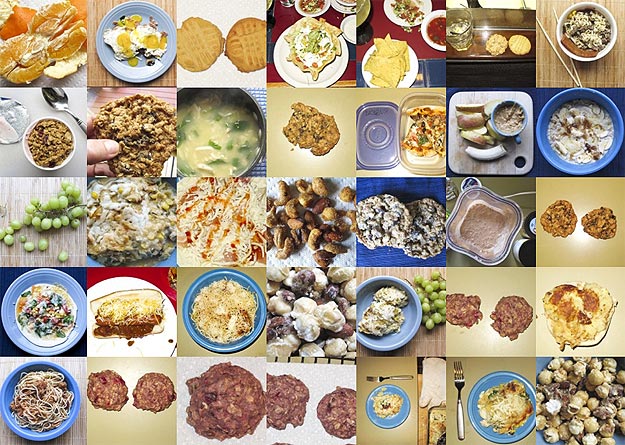Many people, especially in the United States where I live, have at some point reached a day in their lives when they decided they needed to lose a few pounds. The next step in the thought process is, “How will I do that?” Somewhere along the way we’ve probably read or had someone tell us that it’s a good idea to keep a food diary. By writing down every single crumb of food that goes into our mouths, we can better understand the quantity that we are eating, and adjust it where necessary.
In 2010, Bill Rugen created the most complex food catalogue I’ve ever seen, and it wasn’t even for a diet. He explains in his manifesto that for every day in 2010 he photographed every single thing he put in his mouth, even if it was just a nut or a taste of something. He uploaded it to Consumed, tagged it with the type of food, the month, and when he at it. The result of his work is an online food diary that will blow your mind.
He explains that the website is best viewed with a lot of pictures at the same time so you can get the full effect. He recommends clicking on a month or clicking on something in the tag cloud. Why did he do this? He insists he just did it to do it. There is no hidden psychological “trying to make myself be better” meaning to it all. He leaves the entire interpretation of all his work to the readers. Click on over to Consumed and check it out for yourself. Once you experience this site, you realize it has a lot more to do with beautiful visuals than it does food. Oh, and by the way, he doesn’t like cauliflower.
Via: [Presurfer]



COMMENTS